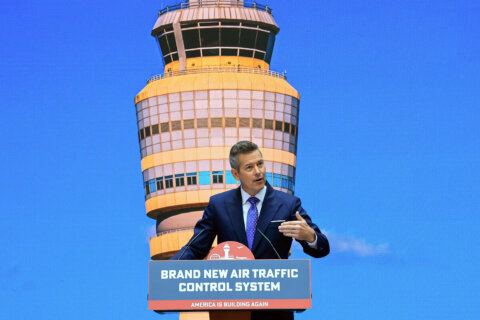Fear of self-driving cars is on the rise, according to AAA, even as drivers express interest in the partially-automated vehicle technology.
This year saw a major increase in drivers that are afraid of self-driving vehicles, rising to 68% compared to 55% in 2022.
“We were not expecting such a dramatic decline in trust from previous years,” said Greg Brannon, director of automotive research for AAA. “Although with the number of high-profile crashes that have occurred from overreliance on current vehicle technologies, this isn’t entirely surprising.”
Last month, U.S. safety regulators pressured Tesla into recalling nearly 363,000 vehicles with its “Full Self-Driving” system because it can misbehave around intersections and doesn’t always follow speed limits.
“While there’s still a very high level of interest in partially-automated vehicle technology, attitudes toward fully self-driving vehicles have become increasingly apprehensive,” said Ragina Ali, manager of public and government affairs for AAA Mid-Atlantic.
The auto club membership organization said its findings suggest improvements are still needed to build public trust and knowledge about emerging vehicle technology.
The AAA study found nearly one in 10 drivers believe they can buy a vehicle that drives itself while they sleep. As of now, there is no such vehicle available for purchase by the public that would allow someone to fully disengage from the task of driving.
AAA’s Ragina Ali said the perception could come from misleading or confusing names of vehicle systems that are already on the market.
“It’s important for consumers to know that at this time, there are no fully-self-driving vehicles that would allow a human driver not have control of the vehicle at any time. Those types of vehicles are classified as Level 5 for automation — there’s testing and studies going on, but they simply don’t exist for consumers right now,” said Ali.
However, currently-available technology — including blind spot warning, adaptive cruise control and automatic emergency braking — continue to impress drivers.
According to AAA, “Six in 10 U.S. drivers would ‘definitely’ or ‘probably’ want these systems in their next car purchase.”
Brannon said AAA wants to partner with automakers to create greater consistency across the industry.
“Together, we can help consumers understand the type of technology their vehicle has, along with how, when and where to use these systems, which will ultimately build trust in the vehicles of the future.”
The Associated Press contributed to this report.








